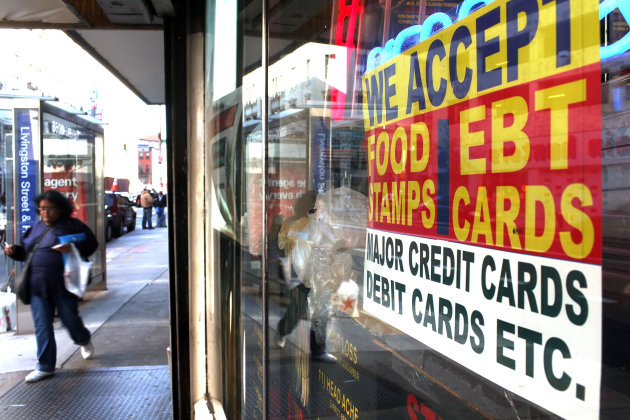Even worse off were single mothers and black and Latino households, the survey found.
As NPR notes, "People went hungry."
The survey tracked families who had some issues with finding enough food, dubbed "food insecure," and those deemed "very very food insecure," who lacked basic nutrition at some point during the year. The latter category includes some 6.8 million households nationwide in which adults skipped meals, couldn't afford balanced meals, and worried about having enough money to buy food several months out of the year.
In all, the "food insecure" represented 5.7 percent of American households. It's not much of a change compared with 2010, but it's 2 percent more—thousands of people more—since 1998.



3 comments:
"
What’s it like to be poor in America? Dare I say it? Not all that horrible, actually. First – in a general sense – the average poor person in America has a higher standard of living than the average European. Read that sentence again – you need to understand what I’m saying there. Read it until it sinks in. Take the average POOR person in America and tell them they’re going to have to live like the AVERAGE EUROPEAN .. and they’ll start screaming racism, discrimination, oppression, and every other leftist trigger word they can remember."
Above is excerpt from --> http://townhall.com/columnists/nealboortz/2012/09/05/the_risk_of_being_poor/page/full/
In other words these people are not really
hungry because they don’t live in Haiti or the DRC. Their hunger is just a
figment of their imagination.
Meanwhile the current defense budget of the
POTUS allocates $88 billion for wars even after being forced to pull out of
Iraq.
“I was increasingly compelled to see the war
as an enemy of the poor and to attack it as such.” Dr. Martin L. King, Jr.
Tooling down the highway at 110mph with AC/DC blasting through your stereo is consistent with fundamental American values - feeding D'onte an'em, not so much...., https://www.google.com/search?hl=en&sugexp=les%3B&tok=yg1bDC3vX3Xz-cdGiwyuIg&cp=8&gs_id=if&xhr=t&q=dodge+muscle+cars&bav=on.2,or.r_gc.r_pw.r_qf.&biw=1600&bih=773&um=1&ie=UTF-8&tbm=isch&source=og&sa=N&tab=wi&ei=BzpLUKmzH4fm0QH_-oCgDA
Post a Comment